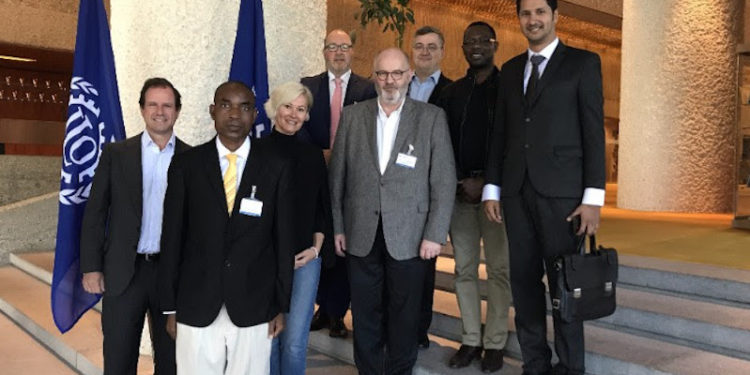Europêche representatives defended and promoted full respect for the social and labour rights of all fishing vessel’s crews and demanded that the same level of compliance must be required for all countries during the Tripartite Meeting on Issues Relating to Migrant Fishers held by the International Labour Organization (ILO) during the last week in Geneva.
Representatives of governments, workers and employers adopted a set of conclusions, which includes a joint resolution, to address the challenges faced by fishers working on foreign vessels.
Representing Europêche were experts appointed as representatives of the delegation of the International Organization of Employers (IOE), including Javier Garat (Cepesca, President of Europêche), Ment van der Zwan (Pelagic Freezer-trawler Association, PFA and Europêche spokesman for social affairs in fisheries), Cor Blonk (PFA, Chair of the EU Social Dialogue Committee in the Fisheries sector) and Friðrik Friðriksson (Fisheries Iceland, collaboration agreement with Europêche on social affairs).
The Employers’ group drafted a resolution text which was proposed jointly with the workers and finally adopted as a joint resolution, stressing the need to increase the number of countries adhering to ILO Work in Fishing Convention C188 and to harmonise fisheries policies with international standards on safety at sea.
The joint resolution also requests governments to facilitate the recruitment of foreign fishers and simplify procedures for granting work and residence permits in countries where there are not sufficient local fishers to meet the vessel operators’ needs. This would help prevent irregularity and red-tape. The overall goal would be to have migrant fishers in a completely legal situation and with adequate working conditions.
In addition, the employers representatives called for greater co-ordination between the various ministerial departments to better carry out inspections on board fishing vessels, combining them and preventing these checks from being repeated unnecessarily, thus reducing precious time for fishing operations. Likewise, the delegation emphasised that the various United Nations agencies with expertise in this field, such as the International Maritime Organization (IMO), the Food and Agriculture Organization (FAO) and the ILO, should better co-ordinate their work to avoid duplication, arguing that social and labour affairs should be led by the ILO.
Europêche representatives called on these UN agencies to produce guidelines on how to properly recruit migrant fishers through hiring and placement services and private employment agencies, on medical examination of fishers and for the implementing the occupational safety and health and accident prevention provisions in the Work in Fishing Convention.
Furthermore, in order to establish an effective system of inspection of living and working conditions on board long-distance fishing vessels which do not normally call their flag state ports, as provided for in Article 42.2 of the Convention 188, the IOE requested governments to delegate inspection and certification competences to recognised organisations.
‘Nowadays, we have enough international legal instruments to properly regulate the safety, working and living conditions of our crews, but much remains to be done,’ Javier Garat commented.
‘We must improve their effective implementation worldwide and increase the number of ratifications, particularly concerning the ILO C188. The work published by the ILO to facilitate the implementation of this Convention should be widely disseminated and made available to all countries and the fishing sector, such as the Guidelines on inspection by the flag State of living conditions and work on board fishing vessels or the Guidelines for port state control officers.’
‘Fisheries policies need to be aligned with international safety at sea standards; meaning safe construction, safe manning, proper training and adequate working and living conditions,’ added Ment van der Zwan, elected spokesman of the Employers’ delegation.
‘The case of the EU landing obligation is an example of the opposite. It generates more work and fatigue to the workers as well as fishing vessel stability concerns. Furthermore, EU agreements with third countries, such as the Sustainable Fisheries Partnership Agreements (SFPAs) need to be aligned with flag state responsibilities concerning social standards in order to avoid legal and safety concerns (medical certification, basic training, employment relationship, language issues).’
‘On a more positive note, the EU has made a significant step forward on the social-sustainable management of the seas and oceans,’ he said. ‘The recently adopted directive implementing the C188 into EU legislation, following the request from the EU Social Partners (Europêche and European Transport Workers’ Federation ETF) has paved the way towards better work in the fishing sector. Now it is time to lead by example and persuade global actors to implement these rules in order to ensure an international level playing field.’









